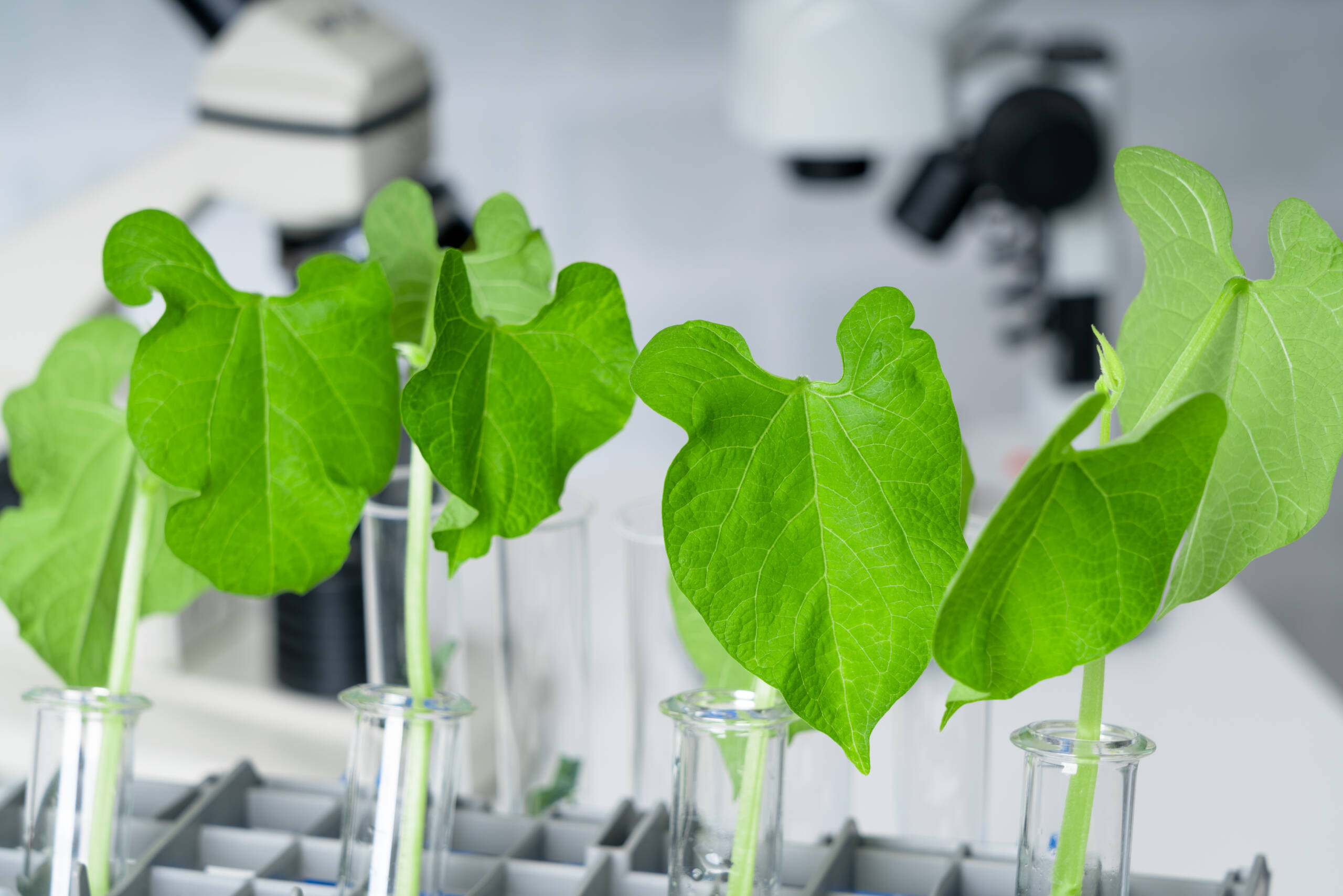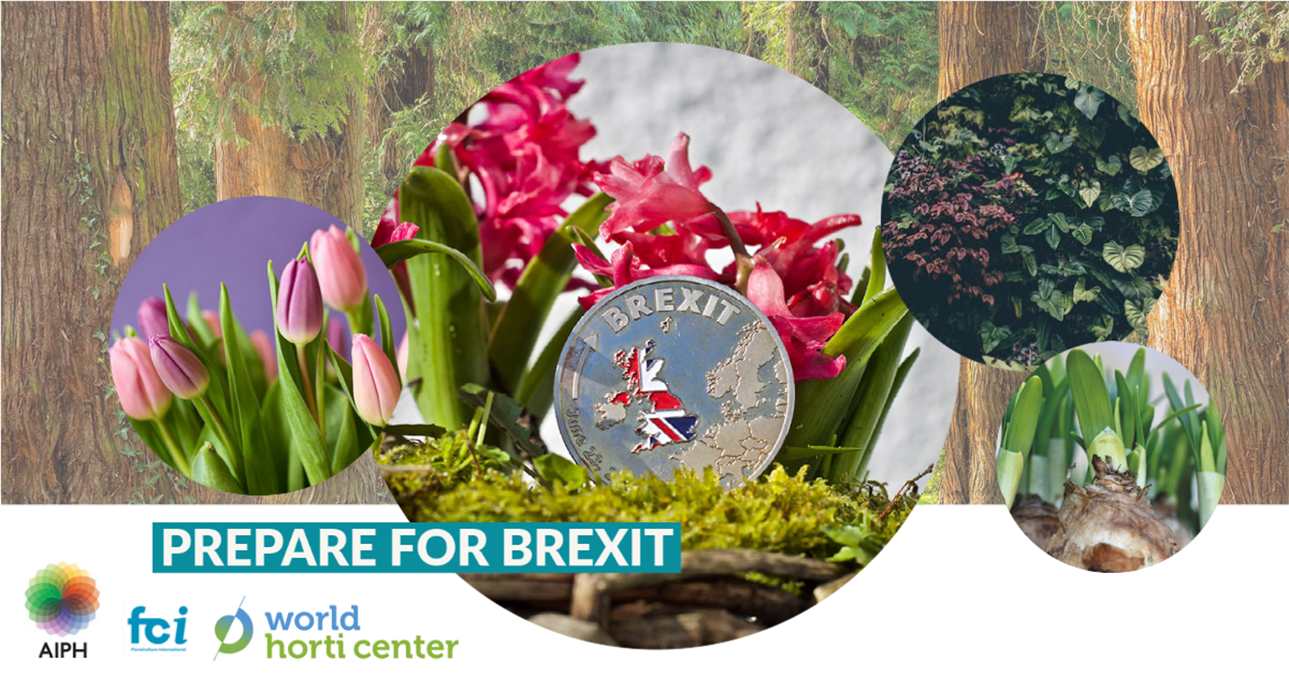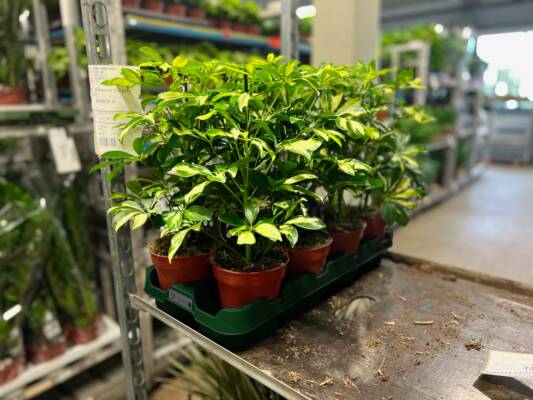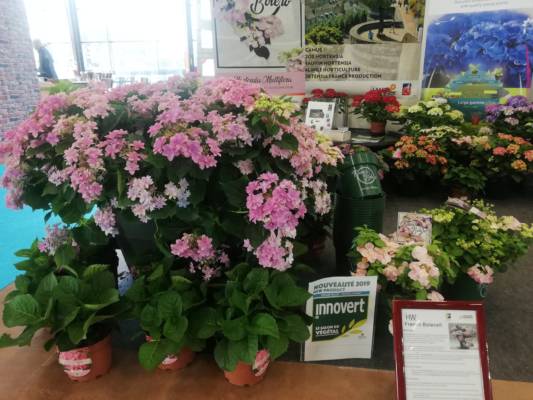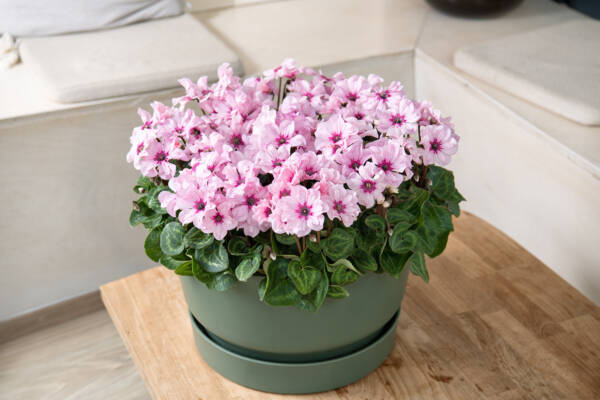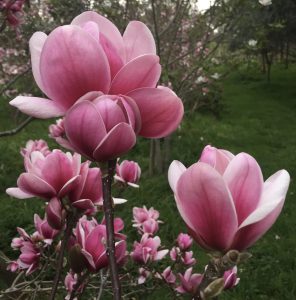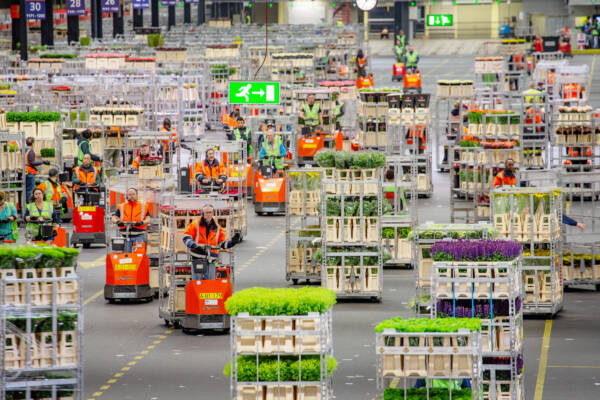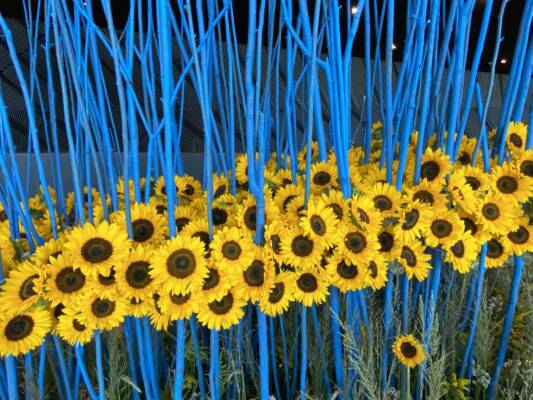It is less than 20 working days until the end of 2020, and there is still no definitive agreement of a trade deal between the politicians of the UK and the EU. ‘Getting Brexit done’ is fast falling on the shoulders of international traders ahead of the 1 January 2021 deadline.
The International Association of Horticultural Producers – AIPH, FloraCulture International and World Horti Center are working together to bring a more precise picture to the global ornamental horticultural industry with two webinars featuring experts from policymakers to nursery owners. The first webinar, in association with the UK’s Horticultural Trades Association (HTA), took place yesterday Wednesday 2 December, with a focus on preparing for the importing and exporting of plants, trees and bulbs. In attendance, online were more than 230 participants from the global supply chain, and a few government officials, all wanting answers to the very question, “How do we get ready?”
The HTA notes that the UK imports about £350m-worth of plants a year (excluding cut flowers). This figure demonstrates the need for practical preparation on both sides as the EU support mechanisms that have been in place for more than 40 years, and more importantly during the Coronavirus pandemic, will not be there after 31 December.
As stakeholders for the UK’s garden trade, Sally Cullimore, Policy Manager, at HTA, is in constant discussion with the UK government Department for Environment, Food and Rural Affairs (DEFRA). She foresees the main problems being an IT system that’s not ready and a legacy system that will not cope with the new pre-notification Place of Destination (POD) system. Her comprehensive presentation gave meaning for the modern anachronisms for various processes and set out the multiple milestones – or challenges – ahead. She did not shy away from the knowledge that there will be many administrative complications that need resolution such as adequate border inspections, a definitive classification of plants – where they are arriving, what’s happening to them. Plus, further complications arising from the new plant passport system and phytosanitary certificates.
On a positive note, she adds that once the IT system is working, it will provide “a greater consolidation of data and more streamlined trade flow”. In conclusion, she says there is a need for greater collaboration adding: “We are fighting for the industry.” She hopes that in talking to DEFRA, there is the political will to suspend import inspection until July.
Moving on from the management of the new administration to the cost of the changes was the next presenter Eline van den Berg, Supply Chain Public Affairs, of Royal FloraHolland, the Netherlands. Using data from major accountancy organisation KPMG and knowledge of current free trading with the UK, their calculations account for additional costs of trade of between 0.6-20%.
Stefan Koopman, Market Economist UK Rabobank, gives a bleak future picture, as he comments upon current impacts which the Bank of England has dubbed “the holy trinity” – coronavirus, Brexit and unemployment. Stefan concludes that “the push for sovereignty has a price that will have a negative effect on the country’s potential rate of growth and may make it less attractive for foreign capital.”
Speaking from the hearts were presentations from Bruce Harnett, Managing Director, Kernock Park Plants, UK and Henk Westerhof, Royal Anthos (Royal Trade Association for Nursery Stock and Flower Bulbs), the Netherlands. Both speakers shared their frustrations with the impending new ways of trading. Bruce fearing the logistical difficulties to exporting to Northern Ireland and Henk needing clarity on the implications of “free of the soil” or “practically free of the soil” and “what is a place of destination mean when dealing with landscapers”?
In the panel session, all speakers agree on their concerns about the interpretations with Bruce adding: “Pragmatism should win in the end.” After all, that is how we have been coping with the coronavirus pandemic.
AIPH secretary general Tim Briercliffe comments: “Amongst the confusion of the Brexit negotiations it is encouraging to see how hard our industry is fighting to keep this vital trade in place after 1 January. With so many questions still unanswered then it was clear that HTA has full support, from both sides of the channel, to reach the best outcomes for our industry and we wish them well as they lobby for these outcomes regardless of what happens with the negotiations.“
The webinar and presentations will be free to view on the AIPH website and YouTube soon.
The next free webinar ‘Preparing for Brexit – exporting and importing cut flowers’ will broadcast live on Friday 4 December from 3pm CET (Central European Time). To register click on this link
Who is presenting?
- Ian Michell, Group Technical & Procurement Director, Flamingo Group, UK – How Brexit could change the supply of flowers to the UK
- Eline van den Berg, Supply Chain Public Affairs, Royal FloraHolland, the Netherlands – Impact of Brexit on the market position of the Netherlands in the UK.
- Stefan Koopman, Market Economist UK Rabobank – The macroeconomic effects of trading with the UK post-Brexit
- Augusto Solano, President of Asocolflores, Colombia – Brexit implications for South America
- Nigel Jenney, CEO Fresh Produce Consortium, UK – Brexit challenges for importers/exporters and how the UK production/retail industry is preparing for Brexit.











